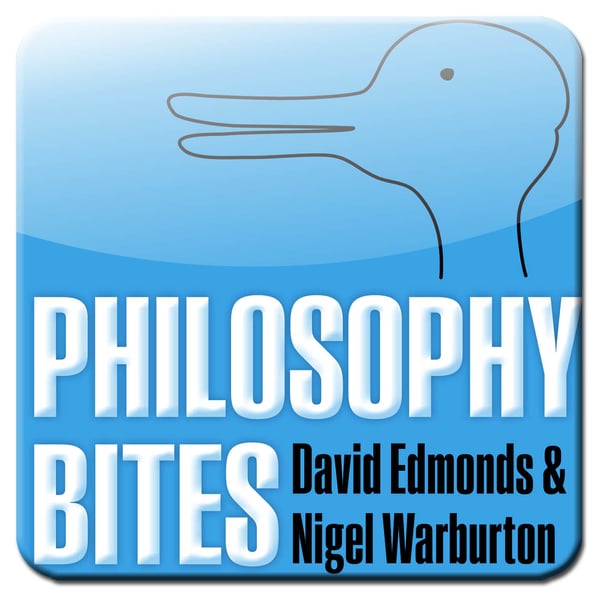Lyndsey Stonebridge on the Life and Mind of Hannah Arendt
Philosophy Bites
Nigel Warburton
4.6 • 2K Ratings
🗓️ 29 January 2025
⏱️ 22 minutes
🧾️ Download transcript
Summary
For this episode in the Bio Bites strand of the Philosphy Bites podcast Nigel Warburton interviews Lyndsey Stonebridge, author of a recent book about Hannah Arendt, We Are Free To Change the World, about how her thought was affected by her circumstances as an emigré fleeing Nazism.
Transcript
Click on a timestamp to play from that location
| 0:00.0 | This is Philosophy Bytes with me David Edmonds and me Nigel Warburton. |
| 0:06.2 | Philosophy Bites is available at www. www.com. |
| 0:10.9 | Hannah Arendt was born in 1906 in Germany and died in 1975 in the US. |
| 0:16.8 | She established her reputation with the origins of totalitarianism, which appeared in 1951. |
| 0:22.6 | This set out to explain the preconditions of totalitarianism and how it differed from other types of government. |
| 0:29.6 | Lindsay Stonebridge is the author of a new book on Arendt. |
| 0:33.6 | This interview on the link between Arendt's life and work is part of BioBites, our |
| 0:39.3 | mini-series within Philosophy Bites. Lindsay Stonebridge, welcome to Philosophy Bites. |
| 0:44.9 | Thank you, Nigel. It's great to be here. The topic we're going to focus on is the life and mind of |
| 0:50.8 | Hannah Arendt. Before we get into that, briefly, could you just say something about who she was? |
| 0:57.0 | Who was Hannah Arendt? She was many women, but I think most listeners will know her through two books. |
| 1:03.0 | The Origins of Totalitarianism and Eichmann in Jerusalem a report on the banality of evil. |
| 1:16.0 | What some people may not know is she lived the themes she wrote about. |
| 1:18.6 | She lived through totalitarianism. And her battle for understanding that phenomenon, the phenomenon of modern evil, |
| 1:23.7 | was also part of her way of living. |
| 1:27.2 | So she began as a thinker as a philosopher, as I understand it, |
| 1:32.0 | as a student of Heidegger's. And that's a really interesting element of her life. Yeah, she was a very |
| 1:38.1 | precocious child. I mean, Hannah Arendt was reading Kant and Schopenhauer at 15 by herself. And she went to Margberg because she wanted to follow |
| 1:46.7 | the Neocantian tradition. And in some ways you can say she never stopped being Kantian. And when |
| 1:51.9 | she got there, she walked into Classroom 11, which is in the basement of the Marburg philosophy |
| 1:56.8 | and mythology faculty, and met Martin Heidegger and that changed her life. |
| 2:03.1 | Heidegger was charismatic, he was eloquent, he was pulling the ground of philosophy from under |
... |
Please login to see the full transcript.
Disclaimer: The podcast and artwork embedded on this page are from Nigel Warburton, and are the property of its owner and not affiliated with or endorsed by Tapesearch.
Generated transcripts are the property of Nigel Warburton and are distributed freely under the Fair Use doctrine. Transcripts generated by Tapesearch are not guaranteed to be accurate.
Copyright © Tapesearch 2025.

